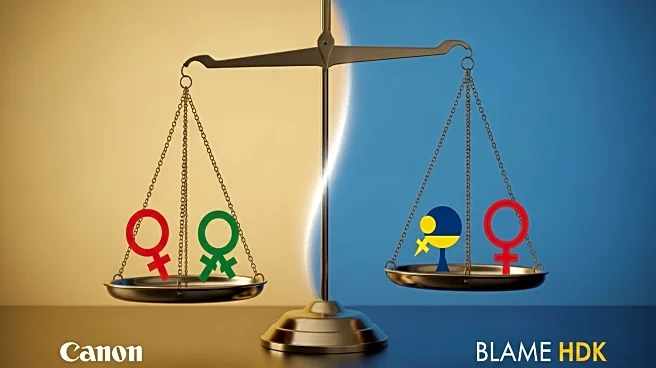What is the story about?
What's Happening?
House Speaker Mike Johnson and House Minority Leader Hakeem Jeffries are trading blame over the ongoing government shutdown, each accusing the other's party of stalling negotiations. Johnson claims Senate Democrats are not serious about ending the shutdown, while Jeffries accuses Republicans, including President Trump, of going 'radio silent' in negotiations. The shutdown, now in its sixth day, stems from disagreements over funding measures, with both parties unable to reach a consensus. Senate Majority Leader John Thune suggests the shutdown's duration depends on Democratic actions, while Democrats argue for immediate negotiations on healthcare subsidies.
Why It's Important?
The government shutdown underscores the deep partisan divide in Congress, affecting federal operations and potentially impacting millions of Americans reliant on government services. The stalemate highlights the challenges of bipartisan cooperation in addressing critical issues like healthcare funding and immigration. The shutdown could have significant economic implications, disrupting federal services and affecting government employees. The political blame game may also influence public opinion and voter sentiment ahead of future elections, as both parties seek to position themselves as champions of public interest.
What's Next?
As the shutdown continues, pressure mounts on both parties to reach a resolution. The potential for economic disruption and public dissatisfaction may drive renewed negotiations. However, with both sides entrenched in their positions, a quick resolution remains uncertain. The outcome of these negotiations could set the tone for future legislative cooperation or further deepen partisan divides. Stakeholders, including federal employees and those dependent on government services, will be closely watching for any signs of progress.















